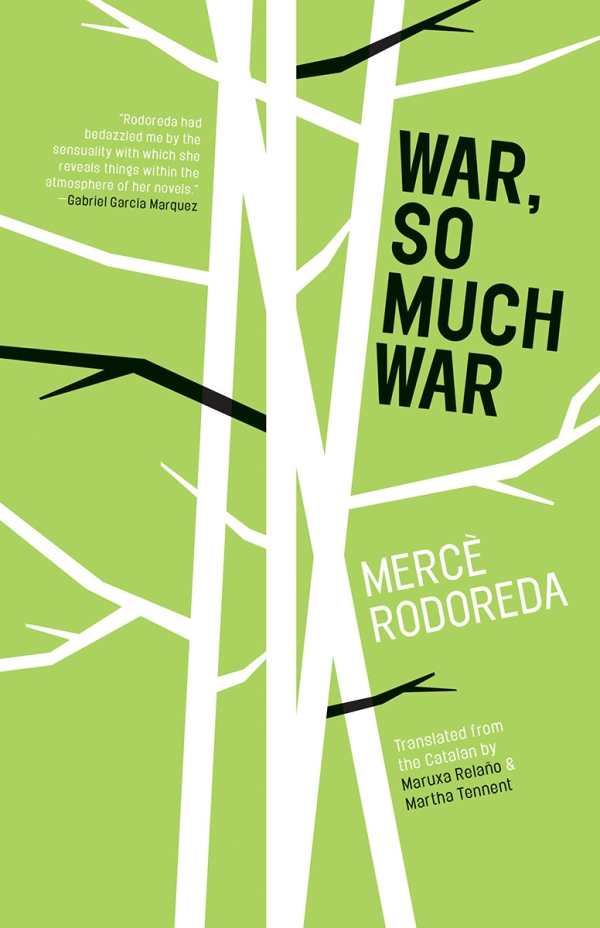War, So Much War
Rodoreda’s final work emphasizes imagery and the language of her characters with sincere and beautiful language of her own.
Mercè Rodoreda’s novel War, So Much War, translated here from the Catalan by Maruxa Relano and Martha Tennent, was her last published work. In its vignette-like chapters, a simultaneous beauty and horror unwraps itself in brief, astonishing ways. The subject matter—ostensibly war—is delivered quite differently than is first supposed. The urge of war becomes, to Rodoreda’s characters, just that: an unexplained urge that is never fulfilled. These and other contradictions allow for undercurrents—dense symbolism, a surrealist, almost magical tone—to guide and haunt the narrative.
The first-person narration is used strongly, creating a subsequent emphasis on language and image throughout. In many places, protagonist Adrià’s inner dialogue trails off into moments of such sincere and beautiful language that it leaves trails, bouncing off of itself in an effortless kind of stream of consciousness that seems to be uniquely Rodoreda’s. These trails and surprising revelations are, foremost, an honest reflection of the mind and its jumps—its associations and triggers as they relate to violence and the terrible shadow it leaves.
War is rarely shown or even given context for in War, So Much War. While this certainly is intentional, the aftermath of war—its loose ends and dense uncertainties—certainly do follow. Death, in many ways, becomes a fantastic mirror into which the narrator glimpses pieces of a reality that is, at best, bent and awry. In one scene, as the boy hides from three men, he overhears their opinions of the war: “The men said that the war might last a lot longer, maybe a hundred years. While there’s cannon fodder, there will be war. A man who looked a bit like my father … said that it was just the opposite.” It seems, as per these loud hyperboles and contradictions, that war means almost nothing in this novel. Connect this with an epigram by D. H. Lawrence, who seems to warn us before the novel’s opening of “a great ravel of flights from nothing to nothing.” This is what makes Rodoreda and this novel worth reading: she takes us into the territory of nothing and leaves nothing behind.
Reviewed by
Kenny Jakubas
Disclosure: This article is not an endorsement, but a review. The publisher of this book provided free copies of the book to have their book reviewed by a professional reviewer. No fee was paid by the publisher for this review. Foreword Reviews only recommends books that we love. Foreword Magazine, Inc. is disclosing this in accordance with the Federal Trade Commission’s 16 CFR, Part 255.

